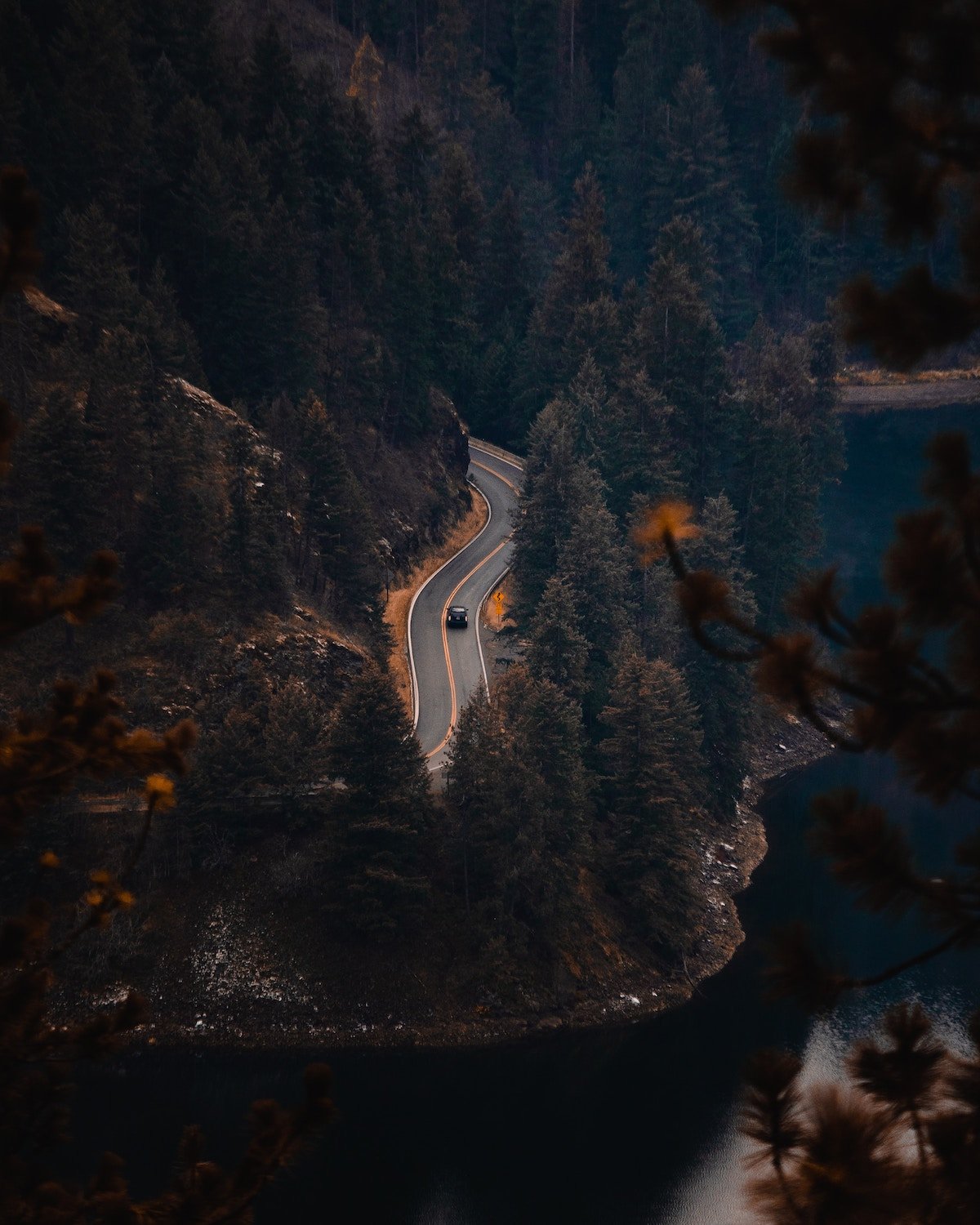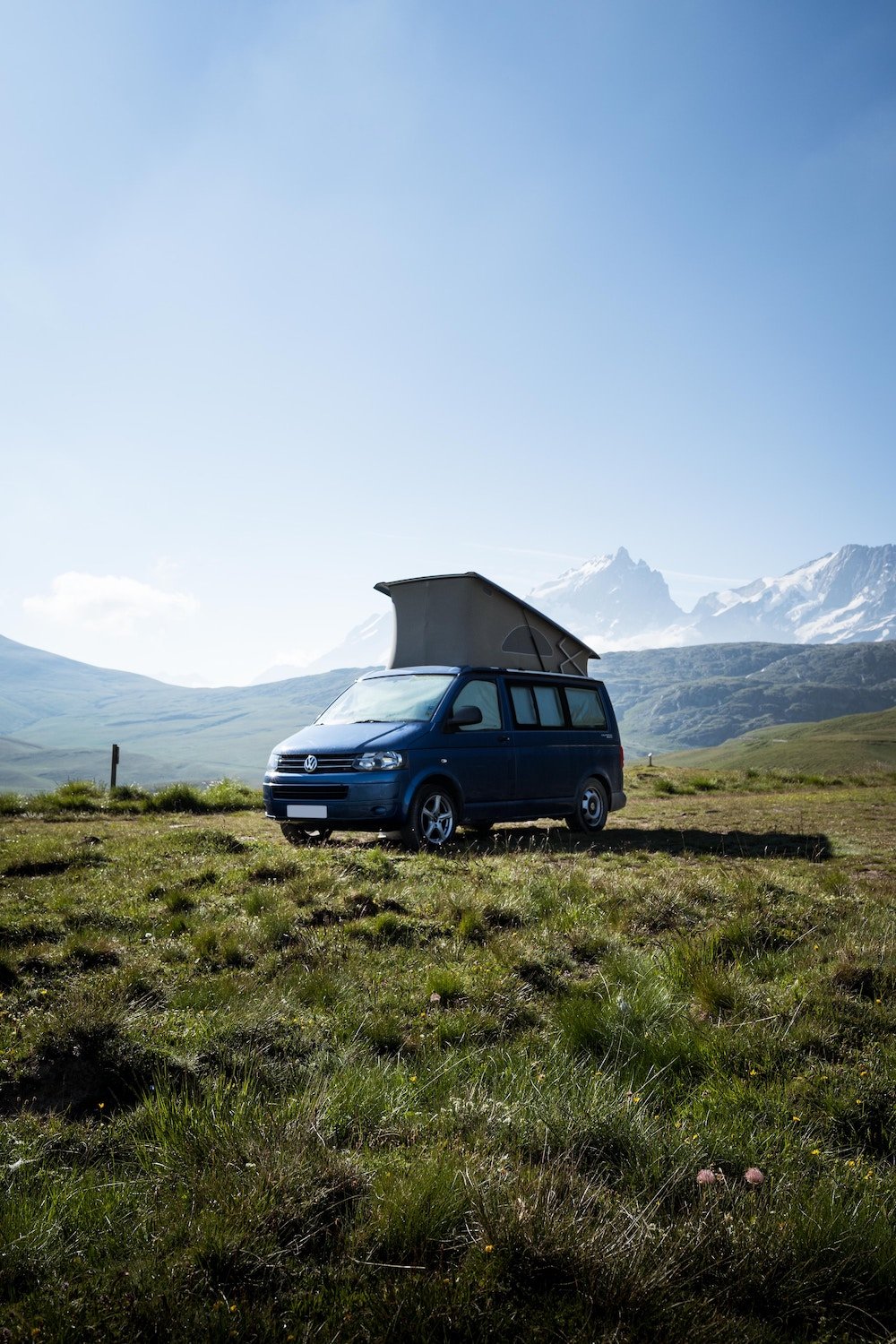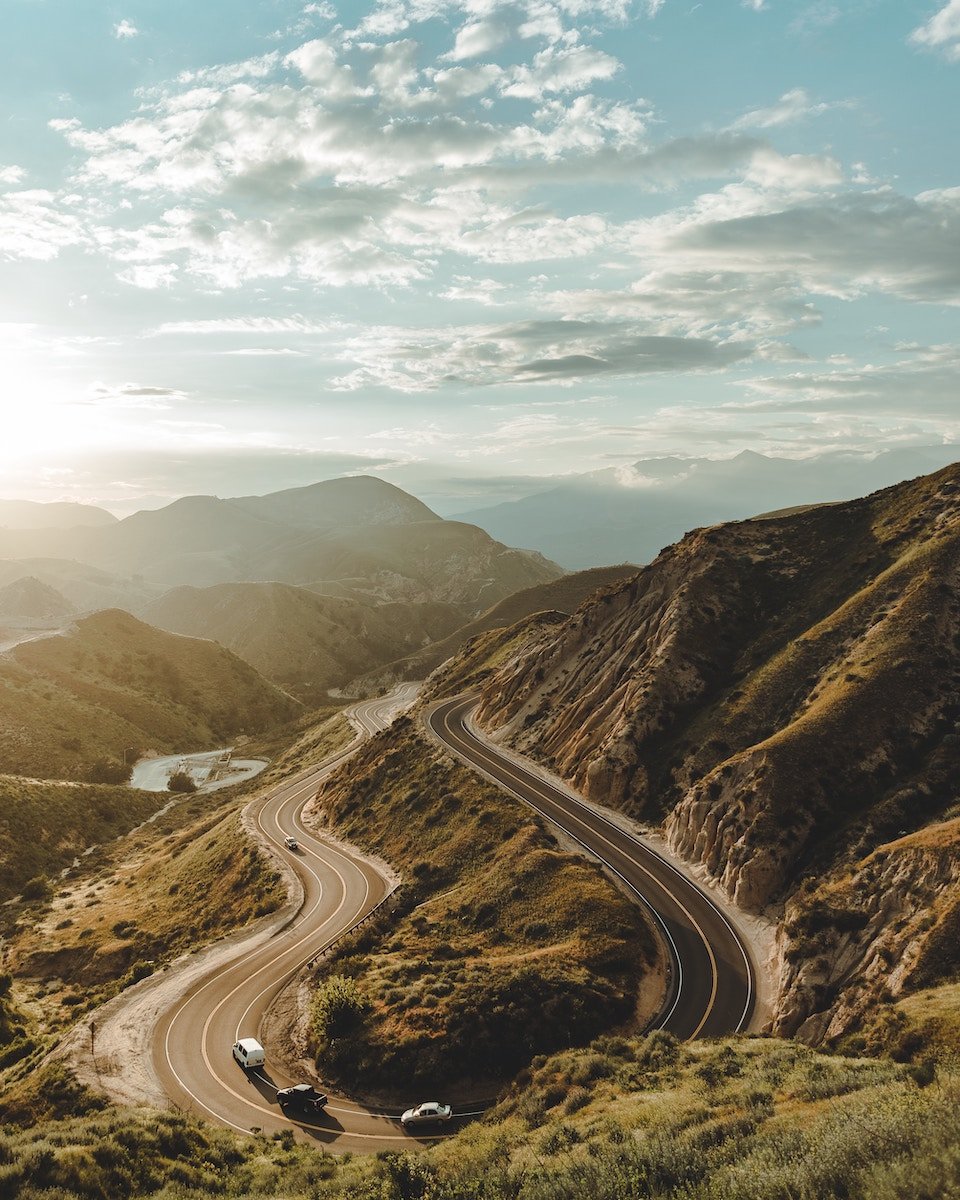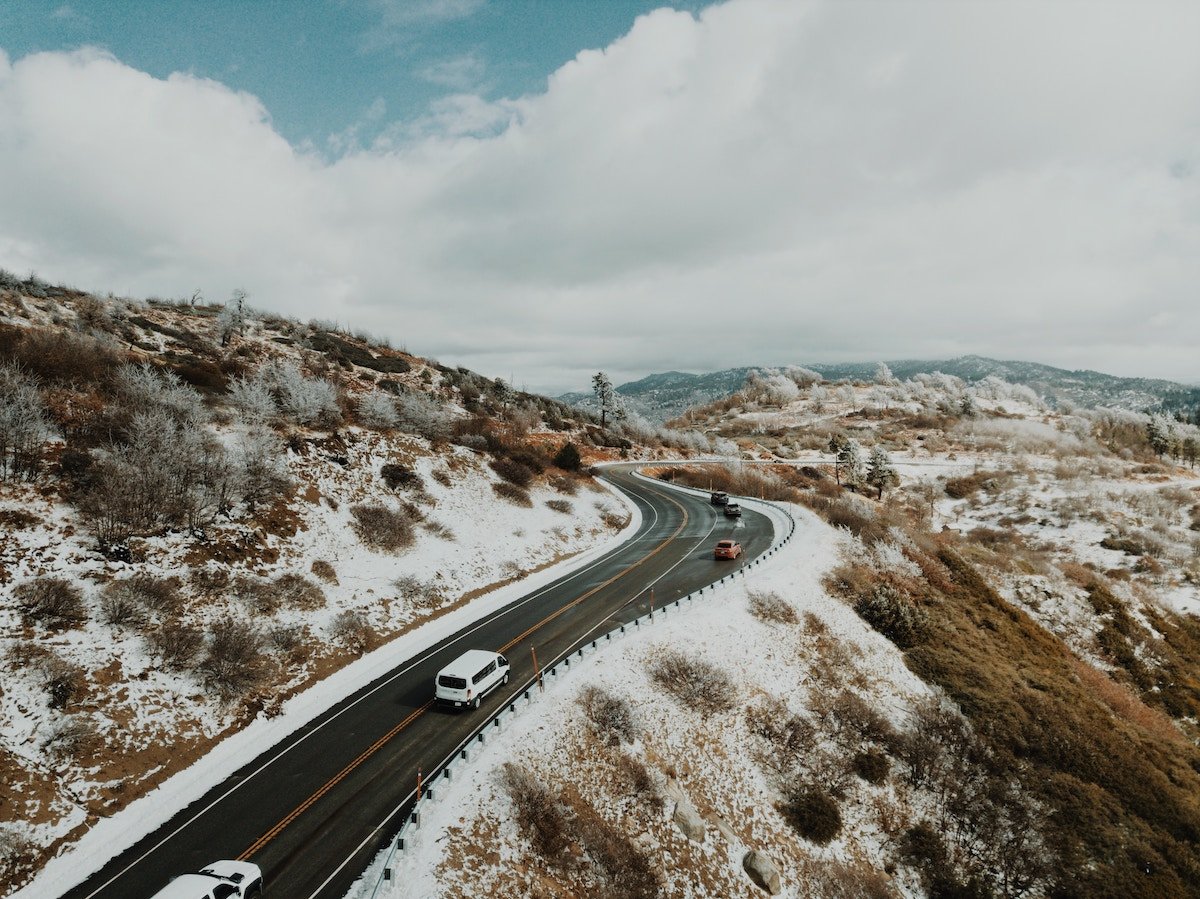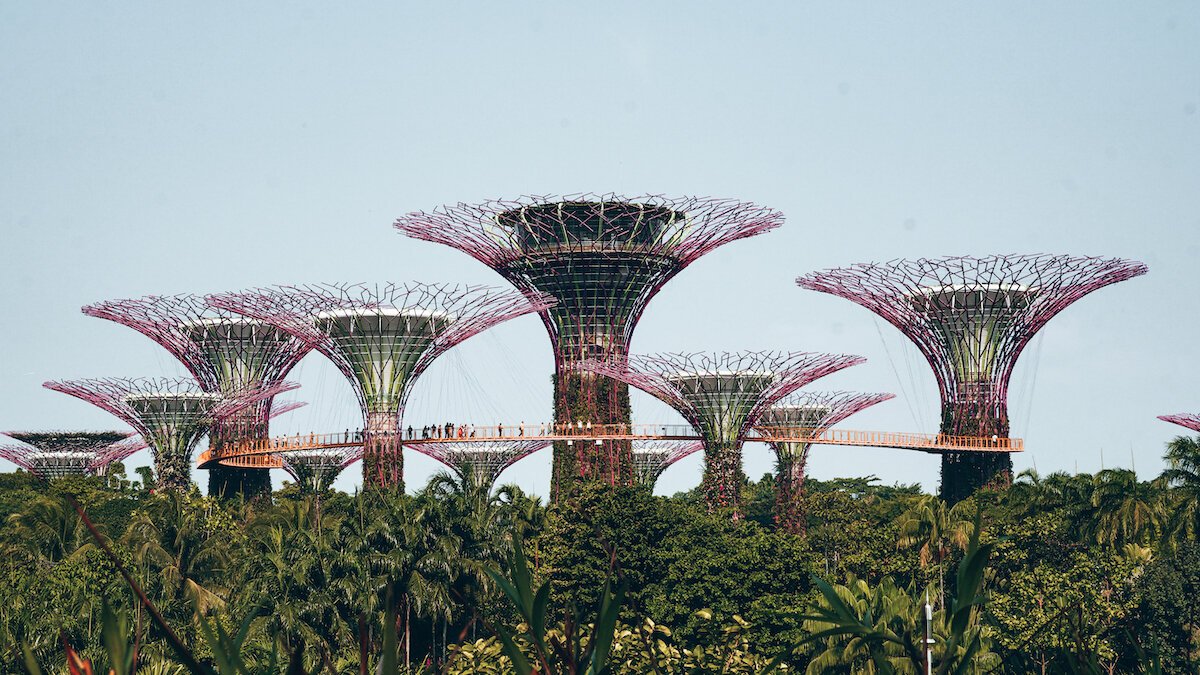Should You Rent a Car or Campervan for your New Zealand Road Trip?
It’s happening!! You’ve booked your flights to New Zealand and you’ve pinned all the beautiful locations you want to see and the hikes you want to do. But you simply cannot decide if it’s worth spending the extra money on a self contained campervan or if a car would get you by just fine? Which is the better option?
The thing is, there is no right answer when it comes to transport. Everyone has different ideas of how they want to travel the country and so the right choice (car vs campervan) will be a reflection of your travel style.
In this article, I will share with you the pros and cons of both Campervans and Cars, the various camping and accommodation options on your NZ road trip, as well as extra tips and advice regarding camping and driving in NZ.
CONTENT:
1. Self Contained Campervans: Pros and Cons
2. Non-Self Contained Cars or Vans: Pros and Cons
3. Where Can You Camp in New Zealand?
4. How Strict is NZ with Overnight Camping Fines?
5. Advice For Freedom Camping in New Zealand
6. Tips for Driving on New Zealand Roads
1. Self Contained Campervans: Pros and Cons
In New Zealand, you will see many Campervans or Motorhomes with a “Self Contained” sticker. Consequently, you will also come across many ‘free’ camping sites, with the restriction being that your vehicle is ‘Self Contained’ - if you ignore this, then you might wake up the next morning to find a massive fine under the windscreen wipers of your car.
What is ‘Self Contained’ and what’s the big deal?
A Self-Contained vehicle basically just means that there is a toilet and waste collection system in place. They often also have a cooking set up, a comfy mattress, and lots of room for your belongings. Some are very spacious and beautifully renovated, while others have just the basics - you get what you pay for :)
However, you cannot simply self-claim your vehicle to be ‘Self-Contained’. It must be officially approved and bear the sticker on your vehicle for it to legally camp on these Freedom Camping sites. They have very strict requirements and so not all Campervans are self-contained.
So when you are buying or renting, make sure to double check this and not just ‘assume’ - as that could be a costly mistake. Consequently, most cars and SUVs are obviously NOT Self-Contained.
Tip: If you’re interested in how to make your vehicle ‘Self-Contained’, then check out this super informative article: Self-Contained Guidelines - NZ
Can you Freedom Camp anywhere with campervans and Self-Contained Vehicles in New Zealand?
Sort of yes… and no. It’s definitely much more widely accepted to freedom camp with self-contained vehicles than with cars. But there are many places that don’t allow any freedom camping of any sort (including campervans).
If you download the App: CamperMate, you’ll find many green campsite. Those are free and usually only for Self-Contained vehicles.
Photo by: Manuel Meurisse // @manualmeurisse
PROS of renting a Campervan in New Zealand
huge spaces and you can really fit a lot in
usually a good toilet system, water reserves, many have showers and even fridges.
can freedom camp on all the GREEN sites (if self-contained)
cooking is much easier and more spacious
generally more comfortable
CONS of renting Campervans in New Zealand
much more expensive than cars
trickier to drive and get around (esp. off roads)
ferry tickets are more expensive
petrol/fuel tends to be more expensive
harder to blend in: very obvious you are a ‘tourist’ and makes it difficult to camp anywhere other than the designated sites.
Campervan is most ideal for those who:
Prioritise comfort (ie. prefer sleeping on a mattress rather than a tent or car) and are committed to spending most nights sleeping in the campervan and have the financial means to acquire that.
eg. Budget Backpackers with Savings (and good driving skills).
Photo by Luke Porter // @lukeporter
2. Non-Self Contained Cars or Vans: Pros and Cons
What is a non-self contained vehicle?
This is basically your normal car rental, but large vans also count as non-self contained if they don’t have a sticker (ie. haven’t been certified).
Can you Freedom Camp with Non-Self-Contained Vehicles in New Zealand?
Bad news guys… you’re technically not allowed to freedom camp without a Self-Contained sticker. New Zealand Government and Regional Councils (especially Wanaka and Queenstown), have really cracked down on freedom campers in recent years.
The only places where you can sleep in your car (or pitch a tent) and rest assured that you will not wake up with a fine, are the following:
Paid DOC Campsites
Paid Holiday Parks
Permission from Land Owners to Camp on their property; and
Odd freedom camping sites that also allow non-self-contained vehicles (very rare)
PROS of renting a car in NZ
smaller, easier to get around and park
uses less petrol/fuel
blends in better, not so obvious you are ‘tourists’, which makes it easier to camp in more inconspicuous places.
cheaper ferry tickets across the strait
cheaper to buy
Cons of renting a car in New Zealand
smaller space to fit all your belongings
constantly have to find toilets and showers
limited FREE campsites for non-self contained
might involve dodging around some grey areas with respect to freedom camping, which could incur in some fines.
if you decide after a while that sleeping in the car is not for you, then your other alternative is to find hostels, which would end up costing you a lot more than buying a campervan.
Car is most ideal for those who either:
don’t mind sacrificing comfort to save money and get around easier - for Super Budget backpackers; or
have a lot of money to spend on accommodation and just need a vehicle to get them around easily.
3. Where can you camp in New Zealand?
So there’s this amazing App for backpackers in New Zealand. It’s called:
CAMPERMATE - and it’s a life saver!
Once you’ve downloaded it, you can now view ALL the campsites across NZ, as well as your next petrol station, toilets and showers, wifi, charging stations, activities and so much more! (It also works offline!)
FREE CAMPSITES:
The GREEN symbolise FREE campsites (on CamperMate App), but often with the restriction of being Self Contained. There are many GREEN sites around, but sometimes you have to drive a little out of the way to get there.
Cheap PAID CAMPSITES:
The BLUE symbolise PAID campsite (often run by DOC) and they are often not very expensive (between $5-20 per person). They range from very basic water and toilet facilities, to the more expensive sites which also have showers and a little hut to cook and chill out in. This is the reason for the price discrepancies.
COMFORT Campsites:
The PURPLE symbolise the more EXPENSIVE PAID camp grounds - often run by independent owners like the TOP 10 Holiday Parks. You often have the option of staying in individual huts as well and/or hostel like dorms. They have charging stations for the big campers, a nice big kitchen to cook in, and most importantly hot showers.
In my humble opinion, it’s not quite worth paying just to pitch up a tent or sleep in your car/camper, which you can do anywhere. But if you’ve been on the road a while and really feel like treating yourself to some comfort, then this could be a good option. Prices are generally upwards of $30 NZD per person, per night (which is roughly the price of a hostel).
TIP: You can also get concession passes for DOC campsites, but only if you are renting (ie. not for privately owned campers). You can find more info here: DOC Site Passes
Photo by Kilarov Zaneit // @kilarov345
4. How Strict is NZ with overnight Camping Fines?
New Zealand has become increasingly strict in penalising those who try to bypass freedom camping rules. Even for myself, as a local, I was ALMOST issued an Overnight Parking Fine in Wanaka, but luckily managed to talk myself out of the situation just as he was writing out the ticket - at 5am!
What are the chances of getting fined in NZ?
This depends on the region you are in and how strict their council is towards campers: certain regions like Wanaka and Queenstown are very heavily patrolled, whilst more remote places will only periodically be patrolled.
It also depends on the time of year: October/November to March/April are the peak months and you will have to be especially careful and smart about where you camp. In winter, they are a lot more chilled out - unless you’re in Wanaka.
And your specific location: If you’re camping on a beach up in the Coromandel that says ‘NO CAMPING’, and decide to sleep in past sunrise… then obviously you’re going to get fined! If you park your non-self contained car on a self-contained only site, then you’re basically asking for it.
Photo by Autri Taheri // @ataheri
5. Advice For Freedom Camping in New Zealand
It is certainly possible to ‘dodge’ your way around these restrictions, although I should and do not advocate people doing this - I know that many of you will anyway. So here are a few tips for you rebels:
Try install or buy a car with dark tinted windows and/or curtains. That way, if you’re having an afternoon (or evening nap) and decided to park on a local street side, then you don’t need to worry about people peeking in. Your risk of getting a fine would also decrease significantly, since they can’t see you from the outside.
Find places where the rules may be grey and blurry. So if you’re a non-self contained car, then don’t park it in a self-contained only site. Go somewhere a little more hidden and without those signposts.
Avoid those super stereotypical cars/campers that can be picked out as a tourist from miles away. By this I mean, campervans with decorations like magic mushrooms painted all over it… the whole point is to try blend in, not stand out.
Sacrifice your sleep to save money. Often this requires finding your spot after dinner (when it’s really dark and most people have gone to sleep), and waking up around 5-6am just to pack down and get out of there before the first light of day. Fuel up on caffeine or find a public, legal place to park and extend your snooze.
Never park in the same place twice to avoid suspicion.
Have a Plan B: what will you say if someone knocks and asks “what the hell are you doing here?” Perhaps you were tired from driving and needed a break? Weren’t feeling well? Got lost?
Photo by Karl Fredrickson // @kfred
6. Tips for Driving on New Zealand Roads
New Zealand roads are super scenic to drive, there’s nowhere else quite like it. But there are also many road accidents that happen on our roads, it’s really heartbreaking. I often see news of tourists forgetting to drive on the left side, underestimating the curvy roads on our mountain passes, or speeding on the highway.
NZ roads are not like European Roads. Our highways are not designed to go around corners like the Autobahn in Germany. On top of that, we have so many off-roads conditions in the remotes areas like: gravel roads, remnants from rockslides and landslides, muddy roads with pot holes, large stream crossings, and steep cliffs less than a metre away from the road.
It’s wild, it’s beautiful, it’s to be respected - not underestimated.
Better to drive slowly and with caution than to put other people’s lives at risk. Driving recklessly is the most selfish thing you could do, especially if you have passengers. I speak from personal experience of having witnessed a few accidents myself.
Is it easier to drive a car or campervan in NZ?
Narrow, curvy roads: Cars are easier and more nimble in getting around the narrow, winding roads. Campervans often have trouble around tight corners, it’s also super nerve racking, and you can bet the trail of cars behind you are super peeved off.
Off-road conditions: if you have a heavy camper, then you must be extremely careful when going off-roads, if at all. It’s just very high risk, especially if it’s raining and there’s a lot of mud, you can get stuck very quickly. Cars get around much easier on off-roads, but if you can score yourself a 4-Wheel Drive, then that is the best best vehicle if you’re planning to do a lot of backcountry or off-road driving.
Parking: Oh gosh, finding a park in a city with a Camper is a headache and a half. No brainer here, cars are much easier to navigate and park when driving through cities.
Ferry Crossings: depending on the size of your car or camper, this will usually result in a different price range when it comes to booking your ferry crossing - so just another thing for you to consider.
Extra Tips before getting behind the wheels:
Invest in becoming an AA member: they help you out in cases of breakdown or flat battery. Life saver, honestly.
Get Insurance, it’s not super expensive and definitely worth the investment, especially if you’ll be in the country for longer than 3 months.
Make sure your WOF and REGO (Registration) are up-to-date. Best case scenario, is to buy a vehicle where the WOF and Rego will expire AFTER you leave the country.
If you fail your first WOF test, go to another provider and they might be a bit more relaxed and send you off without making you cough up hundreds in repairs & maintenance.
Never buy a car or campervan without first inspecting it and going for a test drive. So many stories about people transferring money to the vehicle owner, only to arrive and realise it’s not drivable or it wasn’t what they expected.
Photo by Ivana Cajina // @von_co
In the end it all comes down to personal preference and your financial means - how much are you willing to sacrifice or spend for comfort? The best choice for you will be when the advantages outweigh the disadvantages, this is something very personal and will differ between each and every person/group.
Did you travel through NZ with a Campervan or Car? Which did you prefer and was there anything you’d do differently next time? Hopefully you found this article helpful! If you have any questions, comments or additional tips - feel free to leave a comment down below or message me @emilypeilan :)




